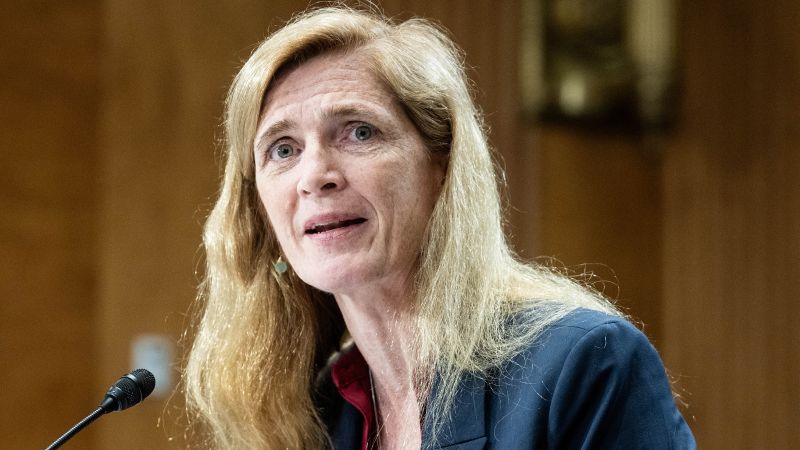In the midst of the ongoing conflict between Israel and Hamas, USAID Administrator Samantha Power has publicly acknowledged that famine is already occurring in parts of Gaza, confirming earlier warnings issued by US officials about the imminent risk of famine in the war-torn region. This assessment is likely to amplify calls for the US administration to reconsider its military aid to Israel, as the Foreign Assistance Act prohibits assistance to countries that obstruct the transport or delivery of US humanitarian aid. Top Biden administration officials have urged Israeli authorities to urgently address the dire humanitarian crisis in Gaza or face potential policy changes from the US.
Secretary of State Antony Blinken emphasized the need for Israel to fulfill its commitments to increase humanitarian aid to Gaza and deliver sustained results to alleviate the crisis. Power, speaking at a congressional hearing, confirmed the assessment by the Integrated Food Security Phase Classification (IPC) that famine is already occurring in parts of Gaza, particularly in northern areas. The IPC analysis from mid-March warned of an imminent famine in the northern governorates of Gaza, with a projected timeline between mid-March and May 2024. The analysis classified both North Gaza and Gaza Governorates in IPC Phase 5 (Famine) with around 70 percent of the population facing Catastrophe.
The alarming statistics revealed by the IPC analysis highlight the severity of the situation, with a significant portion of the population in imminent danger of famine and catastrophic conditions. Power cited the rise in malnutrition rates, noting that prior to October, the rate of malnutrition in northern Gaza was almost zero, but has since increased to one in three children. The lack of sufficient food supplies exacerbates the situation, leading to child deaths in the region. It is evident that immediate intervention is needed to prevent further escalation of the crisis and mitigate the humanitarian impact on the vulnerable population in Gaza.
The public acknowledgment of famine occurring in Gaza underscores the urgency for intensified humanitarian efforts to provide essential aid and alleviate the suffering of the population. Power’s statement at the congressional hearing underscores the credibility of the IPC assessment and emphasizes the need for collective action to address the crisis. The Biden administration’s stance on urging Israel to increase humanitarian assistance reflects a shift towards prioritizing human rights and humanitarian concerns in the conflict-ridden region. The focus on delivering tangible results and sustained aid underscores the importance of ongoing efforts to prevent further deterioration of the situation in Gaza.
The assessment of famine in Gaza serves as a wake-up call for the international community to ramp up support for humanitarian efforts in the region and ensure the delivery of critical aid to those in need. The dire humanitarian situation in Gaza underscores the urgent need for a coordinated response to address the crisis and prevent further suffering among the vulnerable population. The acknowledgment of famine by US officials highlights the severity of the situation and the necessity for immediate action to prevent further deterioration. As the conflict between Israel and Hamas persists, the focus on addressing the humanitarian crisis in Gaza becomes increasingly crucial to safeguard the well-being of the civilian population and prevent a further escalation of the crisis.


